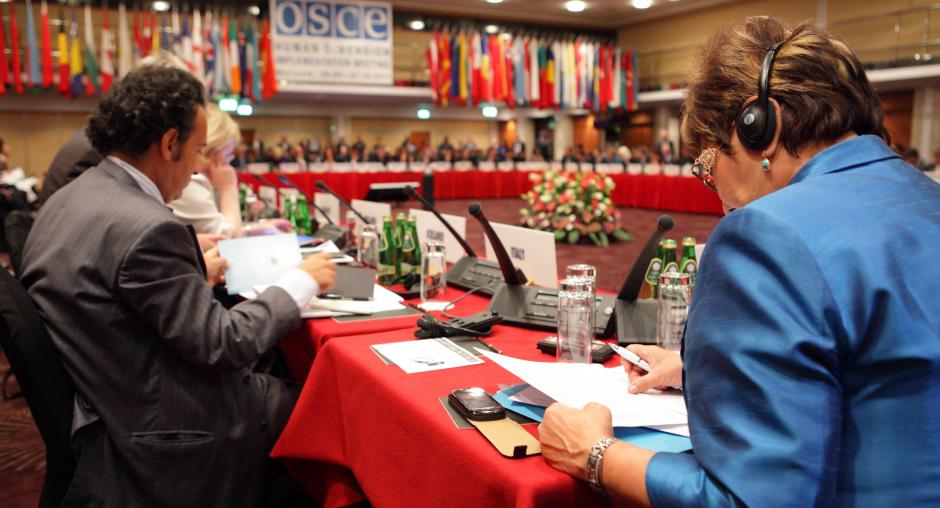OSCE human rights conference examines ways to promote freedom of movement

Freedom of movement was the focus of a special day during the OSCE’s annual human rights conference in Warsaw on 29 September, as participants examined ways to help states deliver on their commitments in this area.
Participants at the two-week OSCE Human Dimension Implementation Meeting said that, while there has been progress in the freedom of movement area in recent years, continuing to work toward visa liberalization would deliver further benefits not only for individuals, but also for states.
“We are already talking about visa liberalization, lifting visa barriers, on top of ongoing efforts for visa facilitation, to make getting visas easier and less expensive,” said Joanna Fomina, co-ordinator of the Friendly EU Border Project at the Stefan Batory Foundation, in Warsaw, who opened the morning session. “This would benefit people and societies at large, not only leading to increased travel opportunities for individuals, but also contributing to the democratization processes in the states involved.”
“On a broad scale, this brings improvements in relations between participating States and strengthens security,” Fomina said.
Already in 1990, at the OSCE meeting on human dimension in Copenhagen, the OSCE participating States agreed that “freer movement and contacts among their citizens are important in the context of the protection and promotion of human rights and fundamental freedoms”.
Participants focused on the difficulties faced by human rights defenders and journalists in gaining entry to countries to monitor the implementation of human rights commitments and fundamental freedoms, as well as by human rights advocates in leaving their own countries for the same purposes.
Discussion was not only on guaranteeing freedom of movement across borders, but also on the ways in which population-registration mechanisms impact on movement within countries.
“Population-registration systems give states the information necessary for providing things like social security or for making important urban planning decisions,” said Kęstutis Bučinskas, an expert on residency registration and migration policy, who introduced the afternoon session. “But registration requirements, unfortunately, are sometimes designed specifically to prevent freedom of movement and choice of place of residence inside the country.”
